POOL: A History of Social Segregation
An Exhibition at the Fairmount Water Works
(Re)Opening March 22, 2022
Postponed due to major flooding just days before the originally scheduled opening, the POOL Exhibit is now open!
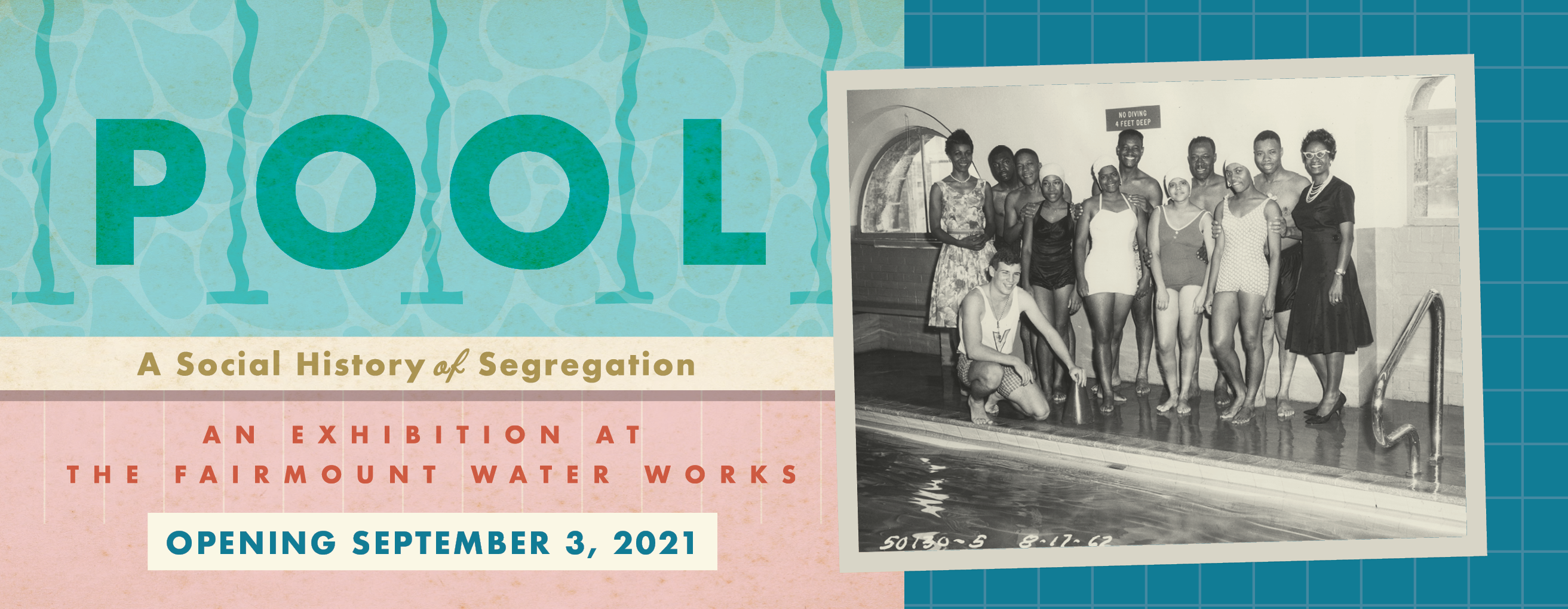
Our inspiring new exhibition explores the connection between water, social justice and public health.

Scan to visit
www.poolphl.com
Admission to POOL is free.
Fairmount Water Works
640 Waterworks Dr.
Philadelphia, PA 19130
(215) 685-0723
Wednesday – Friday
12:00 p.m. – 5:00 p.m.
Saturdays
10:00 a.m. – 5:00 p.m.
Don’t miss this immersive experience! Explore a little-known but significant history in the rich architectural setting of the Fairmount Water Works Kelly Pool.
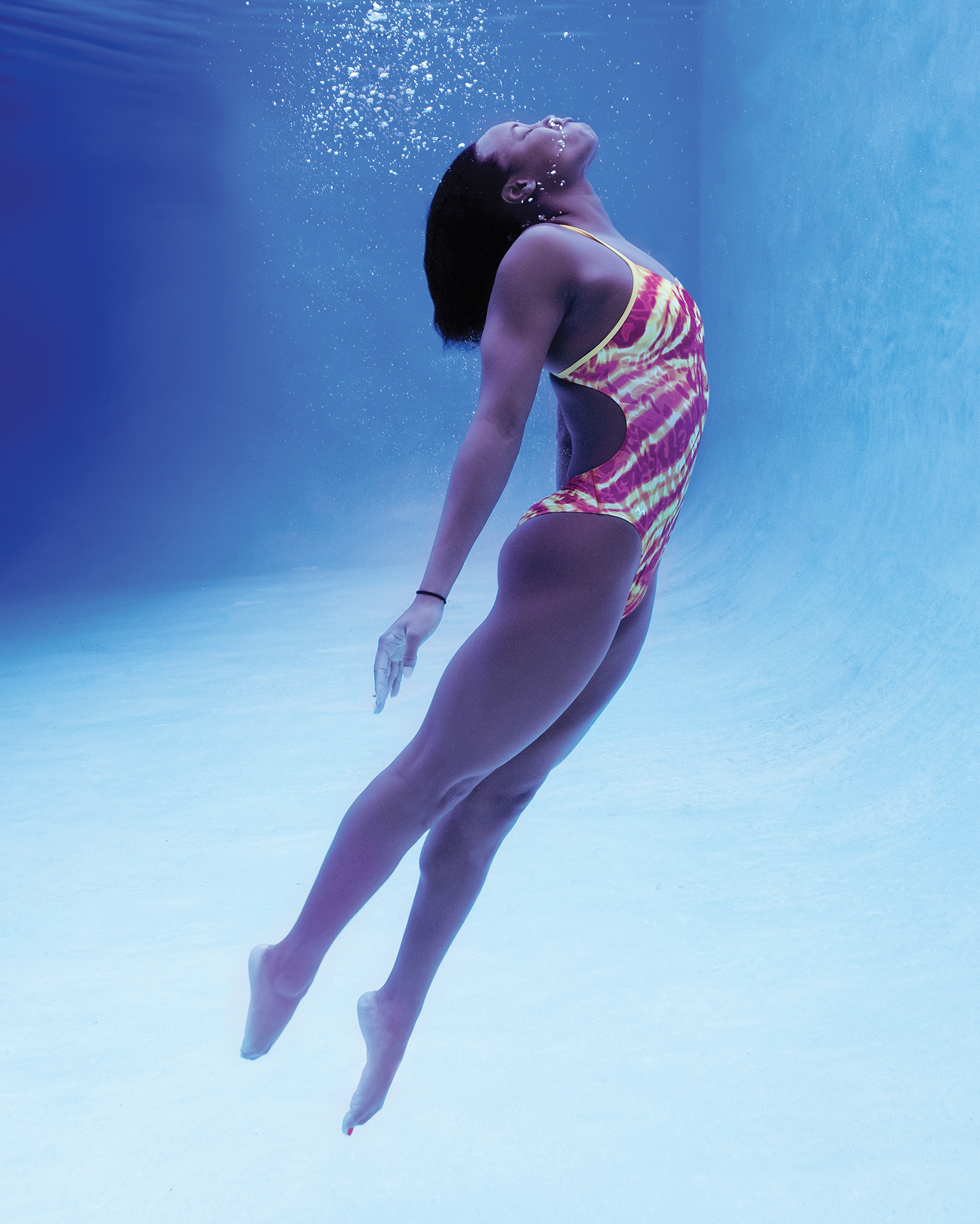
Photograph courtesy of Mike Lewis
POOL illuminates a history of segregated swimming in America, and connects to present-day drowning issues affecting Black communities. Highlights include:
- Contemporary Voices: Gather around our virtual pool to see and hear personal experiences of swimming icons, activists, and scholars.
- Inspiring videos and archival photos reveal a story of exclusion that we must learn from.
- Site Specific Art Installations weave the story of POOL through film, animations, soundscapes, and murals.

” The story of water is a story of social justice. This is true for drinking, bathing, and swimming water. POOL brings this history of swimming to light for positive social change.”
Victoria Prizzia
POOL Creator and founder of Habithèque Inc.
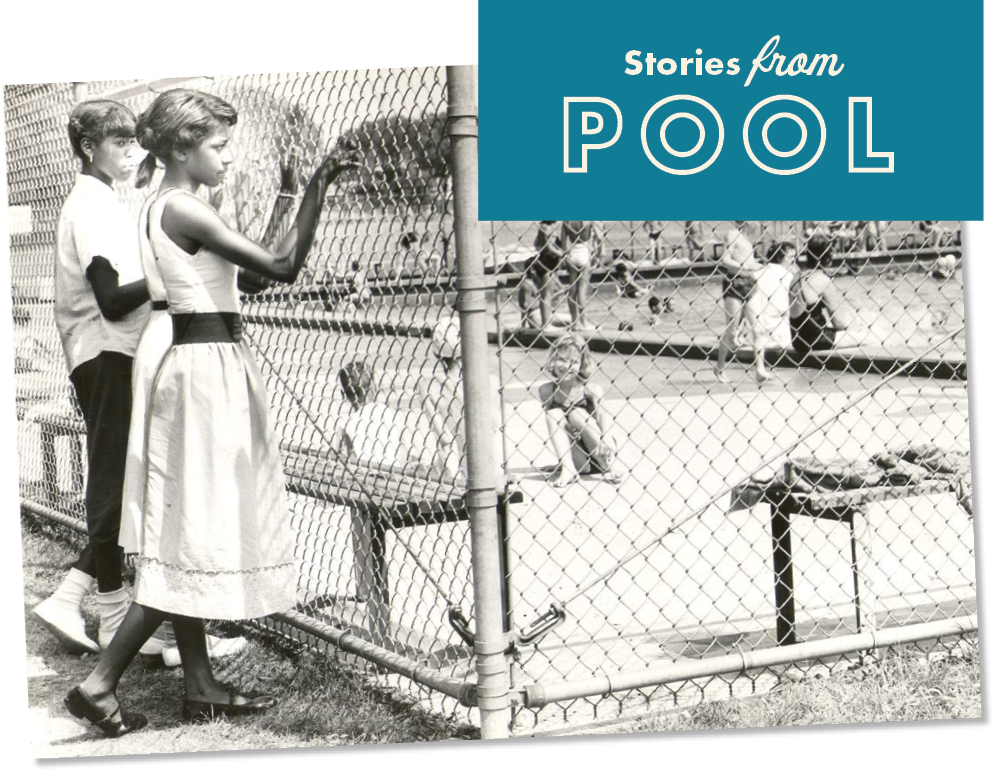
Racial discrimination at swimming pools
The waters of our public pools reflected profound racial and economic divisions running through American communities. They became spaces where cultural values and biases have been contested and disputed—sometimes violently.
Along with a general shift of funds away from public pools to private clubs, sports and recreation, this history has made a lasting impact on Black communities that continues today.
The historic content of POOL was written in collaboration with Dr. Jeff Wiltse, author of Contested Waters: A Social History of Swimming Pools in America. Photo (left) courtesy of Afro-American Newspapers Archives and Research Center, Baltimore
National Icon:
Jim Ellis, Swimming Coach
In 1971, Jim formed the Philadelphia Department of Recreation (or “Pride, Determination, Resilience”) swim team at the Marcus Foster Recreation Center.
His efforts made competitive swimming an option within the city, and improved pool access for all Black swimmers. His program helped Black swimmers receive college scholarships, and became a model for urban swim teams around the country.
Photo (right) by Burk Uzzlee, courtesy of International Swimming Hall of Fame
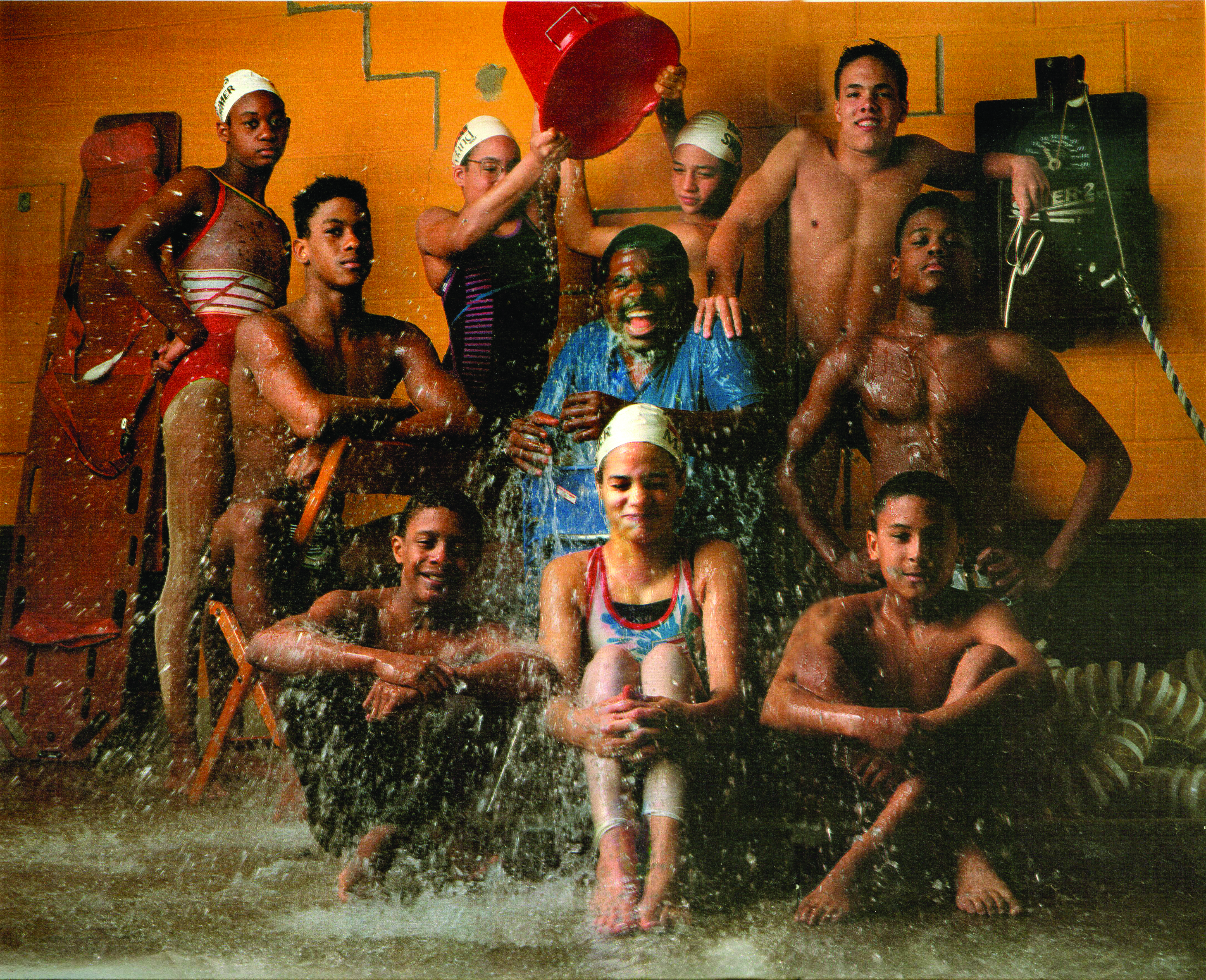
Dive in! Get involved with Philadelphia’s swim community.
Learn about opportunities that help save lives and expand essential aquatic access.
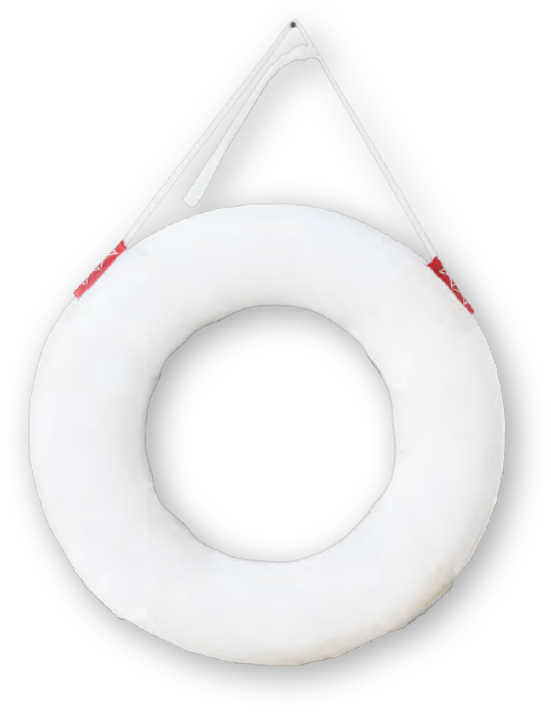
We Can Swim!
This University of Pennsylvania program offers free swimming lessons to vulnerable youth of almost any age and specifically for those of the African American and Hispanic communities.
Diversity in Aquatics, Inc.
The nation’s largest network of ethnically diverse aquatic professionals, athletes, enthusiasts, and researchers working together to help save lives.
Philadelphia Parks and Recreation
Swim Philly
Offers activities and enhancements for neighborhood pools across Philadelphia.
Finder App
Find pools across Philadelphia.
bit.ly/PPRPools2021
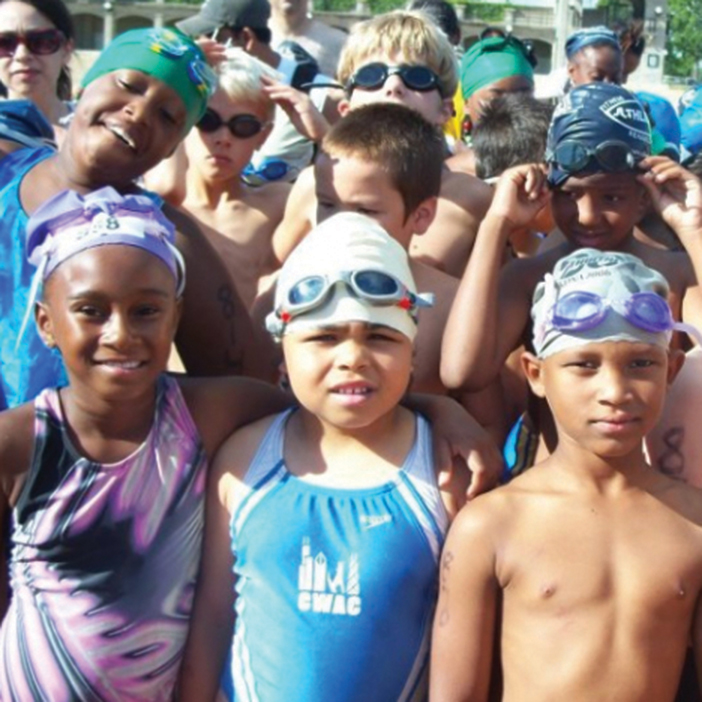
Photo courtesy of Diversity in Aquatics
“In 1883, the City of Philadelphia opened the country’s first outdoor public swimming pool.

The City continues to offer all residents access to swimming lessons and water activities. And yet, equitable access to clean water remains an issue in America and around the world.”
Karen Young
Executive Director, Fairmount Water Works Interpretive Center
